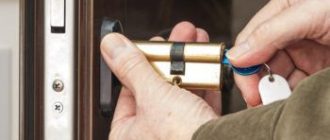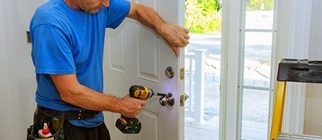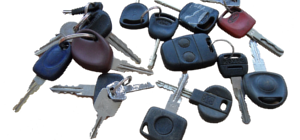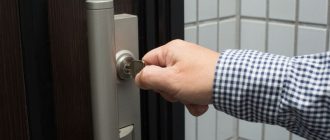
Methods Used by Locksmiths to Verify Ownership
Locksmiths play a crucial role in ensuring the security of our homes, offices, and vehicles. One of the challenges they face is verifying ownership before granting access to a property or vehicle. This step is vital to prevent unauthorized parties from gaining entry.
So, how can a locksmith verify ownership? There are several methods they can employ to ensure that they are providing their services to the rightful owner. Firstly, they may ask for identification documents such as a driver’s license or passport. These documents can help establish the identity of the person seeking entrance.
Another way locksmiths can verify ownership is by requesting proof of ownership documents. This could include a title deed or rental agreement for a property, or a vehicle registration document or insurance card for a car. By checking these documents, the locksmith can ensure that the person requesting their services has the rightful claim to the property or vehicle.
In some cases, a locksmith may need to contact the property owner or vehicle manufacturer to confirm ownership. This can be done through phone calls or online verification systems. By reaching out to the relevant authorities, the locksmith can obtain the necessary information to verify ownership.
In conclusion, locksmiths have various methods at their disposal to verify ownership before providing their services. From requesting identification and proof of ownership documents to contacting relevant authorities, they ensure that they are helping the rightful owner and maintaining security. By following these protocols, locksmiths contribute to keeping our homes, offices, and vehicles safe.
What is a Locksmith?
A locksmith is a skilled professional who specializes in installing and repairing various types of locks. They are often called upon to help people gain access to their homes, cars, or businesses when they are locked out. Locksmiths can also help with lock changes, rekeying, and duplicating keys.
A locksmith’s primary role is to ensure the security and safety of their customers by providing them with reliable lock solutions. They have extensive knowledge of different lock mechanisms and are constantly updated on the latest advancements in lock technology.
In addition to their technical skills, locksmiths also need to have exceptional customer service and problem-solving abilities. They often work under pressure and have to handle emergency situations with professionalism and efficiency.
When it comes to verifying ownership, locksmiths have specific procedures in place to ensure that they are working with the rightful owners of the property. They may ask for identification, proof of ownership, or other documents that establish the customer’s rights to access the locked property.
Locksmiths take their responsibility to maintain security seriously, and they understand the importance of verifying ownership before providing their services. By doing so, they can protect their customers and help prevent unauthorized access to properties.
Why is Ownership Verification Important?
Ownership verification is a crucial step for a locksmith in ensuring the security and protection of a property or asset. By verifying ownership, a locksmith can establish that the individual requesting their services is authorized to access the property or asset in question.
One of the main reasons why ownership verification is important is to prevent unauthorized access. Without proper verification, anyone could potentially gain access to someone else’s property or asset, compromising its security and putting the rightful owner at risk.
Another reason why ownership verification is important is to prevent theft and fraud. By verifying ownership, a locksmith can ensure that the person seeking their services is not trying to manipulate or deceive them for illegitimate purposes.
Additionally, ownership verification helps protect the locksmith’s reputation and credibility. By confirming that they are providing their services to the rightful owner, locksmiths can maintain trust with their clients and the community at large.
In summary, ownership verification is important for a locksmith because it helps prevent unauthorized access, theft, and fraud. It also enables the locksmith to protect their own reputation and provide their services responsibly and ethically.
Methods of Ownership Verification
When it comes to verifying ownership, locksmiths have several methods that they can use to ensure the rightful owner of the property or object in question. These methods include:
- Asking for identification: One of the simplest and most common methods of ownership verification is by asking the individual to provide a valid form of identification. This can be a government-issued ID card, a driver’s license, or a passport. The locksmith can then compare the information on the identification with the information provided by the individual, ensuring that they are the rightful owner.
- Requesting proof of ownership: In some cases, a locksmith may require additional proof of ownership, especially when dealing with high-value items or sensitive areas. This can include providing the locksmith with documents such as property deeds, vehicle registration papers, or receipts of purchase that clearly establish ownership.
- Contacting a third party: Another method that locksmiths can use to verify ownership is by contacting a third party. This can involve reaching out to a property manager, landlord, or building owner to confirm that the individual seeking access is indeed the authorized owner.
- Examining security features: Locksmiths who specialize in working with high-security locks may also employ methods such as examining security features to verify ownership. This can involve checking for unique markings or serial numbers on the lock or conducting tests to determine if the individual has specific knowledge or access codes related to the lock system.
- Performing background checks: In certain situations where a higher level of verification is warranted, locksmiths may also perform background checks on individuals to ensure ownership. This can involve conducting searches for criminal records, conducting employment verification, or reaching out to references provided by the individual.
By utilizing these methods of ownership verification, locksmiths can ensure that they are providing their services to the rightful owners and maintaining the security and integrity of the property or object in question.
Identification Documents
In order to verify ownership, a locksmith can request various identification documents from the individual seeking access to a property or object. These identification documents serve as proof of identity and help ensure that the locksmith is providing access to the rightful owner.
The type of identification documents that may be requested can vary depending on the specific requirements of the locksmith or the nature of the situation. Some common types of identification documents include:
| 1. Driver’s License: | A valid driver’s license issued by a government authority can provide important information such as the individual’s name, address, date of birth, and a photograph. |
| 2. Passport: | A passport is an internationally recognized identification document that contains personal information and a photograph. It can be used to verify identity and citizenship. |
| 3. Government-issued ID: | Other government-issued identification documents, such as national identity cards, can also be accepted as proof of identity. |
| 4. Utility Bills: | Utility bills, such as electricity or water bills, can be used to verify an individual’s address and ensure that they have a legitimate reason for seeking access to the property. |
| 5. Property Documents: | For certain situations, documents such as property deeds or rental agreements may be required to verify ownership or tenancy of a specific property. |
| 6. Social Security Number: | In some cases, providing a valid social security number may also be necessary to verify identity and ownership. |
It is important to note that the specific identification requirements may vary depending on local regulations and the policies of the locksmith. Additionally, the locksmith may use their professional judgment to determine the authenticity and validity of the presented identification documents.
By carefully reviewing and verifying these identification documents, a locksmith can help ensure that they are granting access to the rightful owner and fulfilling their responsibility to maintain security.
Proof of Residence
When a locksmith needs to verify ownership of a property or vehicle, one of the ways they can do so is by requiring proof of residence from the individual requesting their services.
Proof of residence can come in various forms, such as:
- A utility bill
- A rental or lease agreement
- A mortgage statement
- A bank statement
- A government-issued document with the individual’s current address
By providing one of these documents, the individual can demonstrate that they are the rightful owner or occupant of the property or vehicle in question. This helps the locksmith ensure that they are not assisting someone who may be attempting to gain unauthorized access.
In addition to proof of residence, a locksmith may also ask for other forms of identification and proof of ownership, such as a driver’s license or registration documents. By carefully reviewing these documents, the locksmith can verify ownership and proceed with providing their services to the rightful owner.
It is important for locksmiths to have strict protocols in place for verifying ownership to protect the security and safety of their clients. By requesting proof of residence alongside other forms of identification, locksmiths can ensure that they are offering their services to the appropriate individuals and maintaining the integrity of their profession.
Vehicle Registration Papers
Vehicle registration papers are vital documents that can help a locksmith verify ownership of a vehicle. These papers provide crucial information about the registered owner of the vehicle, including their name, address, and other relevant details.
When a locksmith needs to verify ownership of a vehicle, they can ask the owner to provide their vehicle registration papers. The locksmith can then cross-check the information on the papers with the identification documents of the owner to ensure they are the rightful owner.
In addition to confirming ownership, vehicle registration papers also contain details about the vehicle itself, such as the make, model, year, and Vehicle Identification Number (VIN). This information helps the locksmith identify the specific vehicle and ensure it matches with the owner’s description.
Without proper vehicle registration papers, it can be difficult for a locksmith to verify ownership. In such cases, they may need to explore other options, such as contacting the local motor vehicle department or law enforcement authorities, to confirm ownership before proceeding with any locksmith services.
In conclusion, vehicle registration papers play a crucial role in helping a locksmith verify ownership. They provide essential information about the registered owner and the vehicle itself, enabling the locksmith to ensure they are dealing with the rightful owner. It is important for vehicle owners to keep their registration papers safe and readily accessible in case they need to prove ownership in situations like locksmith services.
Property Title Deeds
Property title deeds are legal documents that serve as proof of ownership for a property. They contain detailed information about the property and the registered owner. These documents are typically issued by the government or local authorities and are an essential part of any real estate transaction.
When it comes to verifying property ownership, locksmiths often refer to property title deeds as one of the primary sources of information. Before providing locksmith services, it is crucial for locksmiths to verify the ownership of a property to ensure they are addressing the needs of the rightful owner.
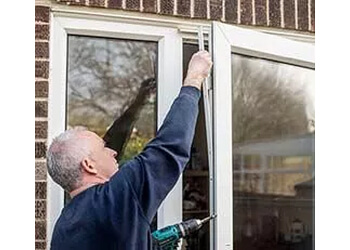
Locksmiths can verify ownership by requesting the property title deeds from the owner or by checking them through online databases or local land registries. These documents contain information such as the property address, boundaries, and legal description, which locksmiths can cross-reference with the customer’s identification and other supporting documents.
Property title deeds provide locksmiths with a reliable way to verify ownership and ensure that they are providing their services to the legitimate owner of a property. This verification process helps maintain security and protect against potential fraud or unauthorized access.
Challenges Faced by Locksmiths
A locksmith is a professional who specializes in a variety of lock and key services, including lock installation, lock repair, and key cutting. Here are some of the challenges that locksmiths often face in their line of work:
1. Security Concerns: Locksmiths deal with sensitive information, such as customer addresses and security systems. They need to ensure that they handle this information securely and responsibly.
2. Evolving Technology: As technology advances, locks and security systems continue to become more complex. Locksmiths need to stay up-to-date with the latest advancements and learn new techniques to tackle modern locks.
3. Time Constraints: Locksmiths often work in emergency situations, such as when someone is locked out of their home or car. They need to be able to work quickly and efficiently to resolve these situations and provide timely assistance.
4. Difficult Locks: Some locks are designed to be highly secure, which can pose a challenge to locksmiths when attempting to gain access. They may need to use specialized tools and techniques to overcome these complex locks.
5. Customer Satisfaction: Customer satisfaction is crucial in the locksmith industry. Locksmiths need to have good communication and problem-solving skills to effectively address customer concerns and provide satisfactory solutions.
In conclusion, locksmiths face various challenges in their profession, ranging from security concerns to evolving technology. However, with the right skills and knowledge, they can overcome these challenges and provide reliable lock and key services.
Legal Considerations for Locksmiths
As a locksmith, it is crucial to understand and comply with various legal considerations to protect yourself and your customers. Here are some key points to keep in mind:
- Verify Ownership: Before providing any locksmith services, it is essential to verify the ownership of the property or vehicle. Requesting proper identification and documentation can help ensure that you are working with the rightful owner.
- Follow Local Laws: Different regions may have specific laws and regulations that govern locksmith activities. Familiarize yourself with the laws in your area and ensure you comply with them to avoid any legal issues.
- Proper Licensing: Depending on the jurisdiction, locksmiths may be required to obtain a license to operate their business legally. Research the licensing requirements in your area and ensure you have the necessary permits and certifications.
- Contractual Agreements: When providing locksmith services, it is advisable to have a clear contractual agreement with your clients. This agreement should outline the scope of work, pricing, and any liabilities. Having a written agreement can help protect both parties and avoid misunderstandings.
- Confidentiality: Locksmiths often gain access to individuals’ private spaces, such as homes and vehicles. It is important to maintain strict confidentiality and never disclose any sensitive information about your clients or their properties.
- Ethical Practices: Uphold high ethical standards when conducting locksmith work. Avoid any activities that may be considered illegal or unethical, such as working without authorization or creating unauthorized duplicate keys.
By adhering to these legal considerations, you can establish a reputable locksmith business and provide your customers with quality and trustworthy services. It is always better to be proactive and ensure legal compliance rather than facing legal consequences later on.
Importance of Professionalism in Verification
When it comes to verifying ownership, professionalism is crucial. A professional locksmith can play a significant role in ensuring that only authorized individuals gain access to a property or a vehicle. By employing their expertise and skills, a locksmith can effectively verify ownership, safeguarding the interests of both the owner and the locksmith themselves.
Professional locksmiths understand the importance of following strict procedures and protocols to verify ownership. They can employ various methods, such as requesting identification documents, checking registration papers, or contacting the property or vehicle owner’s authorized individuals to confirm ownership. This level of professionalism ensures that only those with legitimate proof of ownership can access the property or vehicle.
By upholding high standards of professionalism, locksmiths also build trust with their clients. When individuals require locksmith services, they want assurance that their property will be protected, and only the rightful owners will be granted access. Professionalism in verification provides that assurance, giving customers peace of mind and making them more likely to recommend the locksmith to others.
Additionally, professionalism in verification helps to prevent fraudulent activities. Criminals often try to manipulate or bypass security measures to gain unauthorized access to properties or vehicles. A professional locksmith who excels in verification can easily spot suspicious behavior and take necessary steps to prevent unlawful activities. Their expertise and attention to detail allow them to quickly identify situations that may seem questionable, thus protecting both the owner and the locksmith from potential harm and liabilities.
Overall, the importance of professionalism in verification cannot be overstated. It ensures that only authorized individuals gain access while preventing fraudulent activities. By following strict procedures and protocols, professional locksmiths play a vital role in maintaining security, building trust with clients, and safeguarding the interests of owners.
Importance of Integrity in Verification
When it comes to verifying ownership, integrity plays a vital role in ensuring the accuracy and authenticity of the process. Locksmiths need to establish a high level of trust and credibility in order to effectively verify ownership.
Integrity encompasses honesty, transparency, and adherence to ethical principles. It is essential for locksmiths to conduct the verification process with integrity to protect both the legitimate owner and prevent unauthorized access to property.
By operating with integrity, locksmiths can assure their clients that the verification process is thorough and reliable. It involves verifying identification documents, examining relevant records, and confirming the accuracy of the information provided by the individual claiming ownership.
Verifying ownership with integrity instills confidence in both the locksmith and the owner. It demonstrates the locksmith’s commitment to their profession and the protection of their clients’ assets. Furthermore, it ensures accountability for any breach in security that may occur.
Locksmiths who prioritize integrity in their verification process establish a reputation for themselves as trustworthy professionals. This reputation is crucial in an industry where security and confidentiality are paramount.
Overall, the importance of integrity in the verification of ownership cannot be overstated. It serves as the foundation for establishing trust, ensuring accuracy, and maintaining the security of individuals and their properties. By upholding integrity, locksmiths can provide a reliable and secure service to their clients.
Industry Standards for Ownership Verification
A locksmith can verify ownership through various industry standards and practices. These standards are designed to ensure that the locksmith only provides access to authorized individuals who have legitimate ownership or authorization rights to a property or asset.
One common method used by locksmiths to verify ownership is by requesting identification documents from the individual seeking locksmith services. This typically includes government-issued identification such as a driver’s license or passport. The locksmith can then compare the information on the identification documents with the information provided by the individual to confirm their identity and ownership.
In addition to identification documents, locksmiths may also require proof of ownership or authorization such as property deeds, property management documents, or legal documents authorizing access to the property or asset. These documents serve as evidence that the individual has legal ownership or authorization rights and further verify their claim of ownership.
The locksmith industry also adheres to strict confidentiality and privacy standards, ensuring that sensitive information related to ownership is protected. Locksmiths prioritize the security and privacy of their clients, and only disclose ownership information to authorized individuals or entities.
By following these industry standards and practices, locksmiths can confidently verify ownership and provide their services to authorized individuals, ensuring the safety and security of properties and assets.
Licensing Requirements
In order to verify ownership, a locksmith must meet certain licensing requirements. These requirements differ from state to state, but typically involve completing a training program and passing an exam. The locksmith must also undergo a background check and provide proof of insurance.
Once the locksmith has obtained their license, they can legally operate their business and verify ownership for their clients. This licensing process helps to ensure that only qualified individuals are able to work as locksmiths and protects the public from potential scams or fraud.
By fulfilling the licensing requirements, a locksmith demonstrates their commitment to professionalism and customer service. It gives clients peace of mind knowing that they are working with a legitimate and trustworthy locksmith who has met the necessary qualifications.
Background Checks
When a locksmith needs to verify ownership, they can use background checks as a tool to help secure the property or belongings. Background checks involve gathering information about an individual’s history, including criminal records, employment history, education, and any other relevant details.
By conducting a background check, a locksmith can ensure that the person requesting access to a property or item is indeed the rightful owner. This helps to prevent unauthorized access or theft.
Background checks can be done through various methods, such as online databases, public records, or by contacting relevant institutions or authorities directly. It is important for locksmiths to have access to reliable and up-to-date information to accurately verify ownership.
Additionally, background checks can also provide locksmiths with valuable information about any potential risks or concerns regarding the individual’s history. This can help them make informed decisions and take necessary precautions when providing their services.
Overall, background checks are a crucial tool for locksmiths to verify ownership and ensure the safety and security of their clients’ property and belongings.
Professional Associations
A locksmith can verify ownership of a property by being a part of professional associations. These associations require locksmiths to meet certain criteria and possess the necessary qualifications and certifications. By being a member of such associations, locksmiths demonstrate their commitment to the industry and their dedication to upholding high standards of professionalism and ethical conduct.
Professional associations provide locksmiths with access to resources, training, and networking opportunities that can help them stay updated with the latest advancements in the field. They may also require locksmiths to undergo background checks and provide references to ensure their trustworthiness and reliability.
When hiring a locksmith, it is advisable to choose one who is a member of a recognized professional association. This provides assurance that the locksmith has undergone a verification process and meets the industry standards. It also serves as a form of protection for the property owner, as the association can mediate any disputes or complaints that may arise between the locksmith and the customer.
In summary, professional associations play a crucial role in helping locksmiths verify ownership by ensuring that they meet the necessary qualifications and adhere to ethical standards. Being a member of such associations gives locksmiths credibility and provides property owners with peace of mind knowing that their locksmith is trustworthy and reliable.
New Technology in Ownership Verification
In today’s fast-paced world, technology is constantly evolving and improving. This holds true for the locksmith industry as well. Locksmiths are always searching for new ways to verify the ownership of their customers’ property and ensure the security of their belongings.
One of the latest advancements in ownership verification is biometric identification. This technology uses unique physical characteristics, such as fingerprints or facial recognition, to verify a person’s identity. Locksmiths can now use devices equipped with biometric scanners to confirm that the individual requesting their services is the rightful owner of the property.
Another innovative solution is the use of smart locks and digital keys. With this technology, locksmiths can provide their clients with a digital key that is linked to their unique identification. These digital keys can be sent via email or SMS, eliminating the need for physical keys. The locksmith can then remotely verify the ownership of the property and grant access to the rightful owner through the smart lock.
Blockchain technology is also making its way into ownership verification. By utilizing blockchain, locksmiths can create a tamper-proof record of ownership. This record can be accessed by authorized parties, such as locksmiths, to verify ownership and prevent unauthorized access to the property.
By embracing these new technologies, locksmiths can enhance their ability to verify ownership and provide secure solutions to their customers. Whether it’s utilizing biometric identification, smart locks, or blockchain technology, locksmiths are staying at the forefront of advancements in ownership verification to provide the highest level of service and security.
Q&A:
What is ownership verification in locksmithing?
Ownership verification in locksmithing refers to the process of confirming that the person requesting locksmith services is the rightful owner or authorized user of the lock or property in question.
Why is ownership verification important for locksmiths?
Ownership verification is important for locksmiths to ensure that they are not aiding in any unlawful activities, such as breaking into someone else’s property. It also helps protect the interests and security of the legitimate owner.
How do locksmiths verify ownership?
Locksmiths can verify ownership through various methods such as asking for identification documents, checking for proof of property ownership, contacting the property owner or authorized personnel, and using electronic or digital confirmation systems.
What happens if a locksmith cannot verify ownership?
If a locksmith cannot verify ownership, they may refuse to provide their services. It is important for locksmiths to prioritize security and legality, and they should not proceed with any locksmith services without proper ownership verification.
Are there any legal consequences for locksmiths who fail to verify ownership?
Yes, there can be legal consequences for locksmiths who fail to verify ownership and assist in unauthorized access. They can face charges for aiding in illegal activities, and their professional reputation may also be negatively affected.
What methods do locksmiths use to verify ownership?
Locksmiths can use various methods to verify ownership, such as asking for identification, asking for proof of address, or contacting the property owner or manager to confirm their authorization. They may also ask security questions or require the owner to provide a key or access code.
Why is it important for a locksmith to verify ownership?
It is important for a locksmith to verify ownership to ensure that they are providing their services to the rightful owner of the property. This helps prevent unauthorized access and protects the security and privacy of the property owner.

